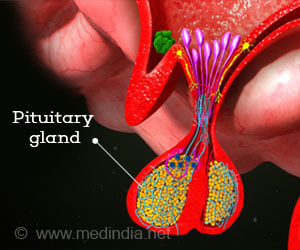A new study by a scientist of Indian origin has demonstrated that high-energy space radiation may cause prolonged cellular damage like premature ageing to astronauts.
A new study by a scientist of Indian origin has demonstrated that high-energy space radiation may cause prolonged cellular damage to astronauts, with conditions like premature aging and prolonged oxidative stress in cells.
The study was carried out by Kamal Datta, assistant professor, Lombardi Comprehensive Cancer Center at Georgetown University Medical Center, US.According to Datta, "Radiation exposure, either intentional or accidental, is inevitable during our lifetimes."
"But with plans for a mission to Mars, we need to understand more about the nature of radiation in space. There is currently no conclusive information for estimating the risk that astronauts may experience," he added.
The findings suggest that astronauts may be at increased risk of colon cancer due to exposure to the high linear energy transfer (LET) radiation found in space.
A 2004 report from the National Academies suggested that cancer incidence may be higher in the astronaut population as compared to the general US population.
Also, the National Research Council published a report last month that recommended increased research into the radiation exposures experienced by astronauts during space travel, as well as development of new radiation shielding technologies.
Advertisement
To conduct the study, Datta and his team measured the level of free radicals present as well as the expression of stress response genes in the cells of mice exposed to high-LET radiation similar to that found in space.
The free radicals produced by the radiation causes damage to cells' DNA, and as this damage accumulates, it can lead to mutations - and in some cases, malignant tumors.
The prolonged exposure to free radicals creates ample opportunity for DNA damage to accumulate within individual cells. In fact, Datta and his team observed that the stress response continued for as long as two months after exposure to the high-LET radiation.
In addition the cellular damage from oxidative stress, the researchers also found that the mice exposed to the high-LET radiation aged prematurely.
According to Datta, the mice's coats became prematurely grey, an observation the team plans to follow-up with MRI brain scans.
Source-ANI
SPH/K











